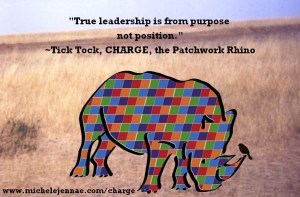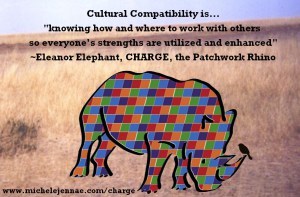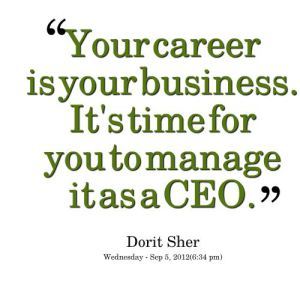Runa Heilung's Blog, page 15
October 1, 2015
How to Connect People, Ideas, and Opportunities
I was having a twitter conversation the other day and someone commented on my bio, which contains my tag line: Connecting people, ideas, and opportunities. He said he found it intriguing and wanted to know how I did that?
I hadn’t really thought about it in a concrete manner, but now that the question had been asked, I began to think about it more and more, especially in finding that my quote
“Networking is not about just connecting people. It’s about connecting people with people, people with ideas, and people with opportunities.” ~ Michele Jennae
can be found on dozens of websites and in three published books, not to mention countless websites that reference it without attribution.
Here is my answer to the question, “How do you connect people, ideas, and opportunities?”
PEOPLE FIRST! I get to know people. Not only are people the originators of great ideas, and creators of fabulous opportunities, they are always in need of them as well. Nothing happens in a vacuum.
EYES AND EARS! I keep my eyes and ears open for ways to connect those people I know to other people, ideas, and opportunities. Listening is a highly underutilized skill. You must not only listen to what is being said, but what is not being said. Put yourself in their shoes, and consider what they might need.
RESOURCES! I use my technology to find and share ideas and opportunities. I blog about interesting topics. I contribute in groups and forums. I make strategic introductions between people who can help each other.
I have recently begun to pay more attention to the HARO (Help A Reporter Out) query emails that come into my inbox, as I am on a mission to gain more exposure. Many of my business-owner and professional friends are looking for the same, so if I see a query that I think might be a great opportunity for them, I simply cut and paste it into a message for them.
I also had the pleasure of listening to an amazing guided meditation by Darlene Nadeau, a peer in my ArtBundance Coaching Certification program. Her voice is incredibly soothing, and the meditation was very helpful to me, someone who struggles with stillness. A few of us mentioned to her following her presentation that she should look into recording an audio book, or create recordings (CD,mp3) of her works. I also thought she might be interested in partnering with a musician that specializes in the type of music commonly used for relaxation and meditation. After asking if she’d be interested, I connected her with Benjamin Bubb, an incredibly talented musician in the area of electronic ambience music. Now it’s up to them what they do with the connection!
I was told once that I should charge a fee for my “business matchmaking” services, but honestly I do it to provide value so that I might be top of mind for them when they need the services that I actually do charge for. In the meantime, it is pure gratification to be of service to them in a way that doesn’t cost me anything at all, but some thoughtfulness and a little effort.
In my book The Connectworker, the primary character Victor learned that networking is about considering others’ needs continually! It’s not hard if you make it a habit!
September 29, 2015
All Of My Clients Get Homework
I just got off the phone with a prospective new client, and I promised him that if he worked with me, he would have homework. In other words, part of the process of progress is preparation. That is where the most important homework is assigned.
The homework I assign depends largely on each client’s goals, and if they aren’t really sure what those goals are, we start there.
Without going too far into the perils of the current educational systems, I do have a very strong opinion about homework, with regard to how it applies to real life. Don’t get me wrong, I am not talking about quantity of homework. I am talking about quality of homework. Unfortunately homework is loathed because the focus is on the immediacy of a test or task that must often be accomplished for the sheer sake of accomplishment, without thought given to long-term implications. Even studying for a test in a subject of little personal interest could be enhanced with proper preparation, making the entire process more effective and maybe even enjoyable.
I am talking about preparation as an acquired skill through spaced repetition, for things like dealing with stress, scheduling and prioritizing, managing people and teams, etc. These things extend far beyond school into the work force, and while you may long be out of school, it is not too late to start the good habits of preparation.
Preparation is more than just the act that you go through, like studying for example. It is about goals, strategy, and process; all of these things have to be personalized to your individual personality. Finding a system that works for you personally is key to your successful preparation efforts. Remember that one form of filing or office organization or study habit might work very well for someone else, but might not be adequate for you. Remember to experiment until you find what works for you.
Most importantly, don’t overlook the preparation. Don’t be afraid of the homework. You will ultimately go into your “performance” much more confidently which will result in more wins for you.
The attitude that you have toward the process of sucess begins with preparation and will carry over, for better or for worse, into your results. Good preparation habits now will save you work later, because you can build on them, and as your preparation habits become second nature, you won’t have to fight so hard with your current tendencies to procrastinate or become distracted.
5 Top Tips for preparation!
Calendar it
Have an organized workspace
Implement personalized systems
Break it into chunks
Know your purpose
How are you successful in your preparation?
September 28, 2015
Be The Leading Lady In Your Own Life
Hero is a funny word. Especially in relation to a biblical avoidance of idolatry if you are biblically inclined. So I searched the online thesaurus to find a way to express hero in healthy terms for an aspiring Christian woman to emulate. “Leading Lady” was the terminology that best fit an objective approach to define hero.
It is likely that you are used to playing a leading role in your life, but the question must be asked: Are you the antagonist or the protagonist? If you are anything like I am, you probably can honestly answer antagonist. We can tend to be so negative and hard on ourselves and often diminish our importance and role in our own life and the lives of those around us. What we can fail to realize is that diminishing of the positive role gives major space to the antagonist.
We don’t necessarily shrink in our role; it is just replaced with a negative role where we fail to realize that the power is equally great, although obviously more damaging.
Accepting our God-given gifts and talents allows us to be who we truly are. Leaning on Him for strength releases us from the burden of our greatness. It is a burden, because it carries such heavy responsibility. That burden, however, is the wellspring of blessings for ourselves and others and we can give the glory to God who placed that wellspring within us.
 I encourage you to re-audition for the Protagonist role in your life! Embrace your uniqueness! Inspire others to do the same! While you may think that you might not get the part, remember God already cast you in it, before you were even born. The part is yours!!
I encourage you to re-audition for the Protagonist role in your life! Embrace your uniqueness! Inspire others to do the same! While you may think that you might not get the part, remember God already cast you in it, before you were even born. The part is yours!!
“Before I formed you in the womb I knew you, and before you were born I consecrated you;
I appointed you a prophet to the nations.” ~ Jeremiah 1:5
Be yourself! Authenticity is essential to being a leading lady.
I don’t normally write with religious undertones, but this article I wrote for the Tapestry Network has so much value regardless of your spiritual path, so I decided to repost it here.
September 25, 2015
5 Skills You Need To Position Your Next Career Move
Every good coach needs their resources, and I’ve got mine. For career coaching, I love the book Guerrilla Marketing for Job Hunters by Jay Conrad Levinson and David E. Perry. They echo much of what I teach, or perhaps I echo what they teach, and even though their awesome website gm4jh.com could be considered my competition, I believe there is enough business to go around. May the echoes reverberate perpetually!
I picked up version 2.0 of the book from the library two years ago, and got hung up on a segment that listed 5 qualities that, according to the authors, “will let you leapfrog over other competitors and showcase the skills and experience employers are looking for.” (Find the segment via google books here.)
The following is a list of those skills and my personal and professional take on them.
 Leadership skills – Leadership is value driven and comes from purpose not position. Leadership is about being accountable, committed, and taking the reins and running with them toward not just the finish line, but the winning line, while motivating others to run alongside.
Leadership skills – Leadership is value driven and comes from purpose not position. Leadership is about being accountable, committed, and taking the reins and running with them toward not just the finish line, but the winning line, while motivating others to run alongside.
 Communication skills – Communication is an imperative as relationships take higher precedence in business. Technology will advance and make some “hard skills” obsolete as qualifications, but people skills will still be needed, and more than ever. A good communicator listens first, and listens to their own drum as it applies to their purpose in life. Then they can authentically communicate that vision to others.
Communication skills – Communication is an imperative as relationships take higher precedence in business. Technology will advance and make some “hard skills” obsolete as qualifications, but people skills will still be needed, and more than ever. A good communicator listens first, and listens to their own drum as it applies to their purpose in life. Then they can authentically communicate that vision to others. Bias toward action – The opposite of this is a lump on a log. The risk averse. Business moves faster than the speed of light now. A candidate must be willing to make moves, even when all the pertinent information isn’t present. Ready, gut check, GO!
Bias toward action – The opposite of this is a lump on a log. The risk averse. Business moves faster than the speed of light now. A candidate must be willing to make moves, even when all the pertinent information isn’t present. Ready, gut check, GO! Passion – Simon Sinek has called this your WHY! and it sounds easier than it actually is to pinpoint. It requires introspection and inspection of your core values. Levinson and Perry call this the “fire in your belly.” It comes from deep within you. Once you’ve identified your passion, you will be a much stronger candidate when you pursue a career move that resonates with that WHY!
Passion – Simon Sinek has called this your WHY! and it sounds easier than it actually is to pinpoint. It requires introspection and inspection of your core values. Levinson and Perry call this the “fire in your belly.” It comes from deep within you. Once you’ve identified your passion, you will be a much stronger candidate when you pursue a career move that resonates with that WHY! Cultural Compatibility – Not to be confused with diversity, or getting along with everyone, Cultural Compatibility is about truly working well with others, without being political (read choosing sides for personal gain). The point is to choose a company culture that resonates with your own personal style and values, and approach the companies that represent that with your irresistible offer to help solve their problems.
Cultural Compatibility – Not to be confused with diversity, or getting along with everyone, Cultural Compatibility is about truly working well with others, without being political (read choosing sides for personal gain). The point is to choose a company culture that resonates with your own personal style and values, and approach the companies that represent that with your irresistible offer to help solve their problems.
In my coaching, I teach my clients to approach their career search from a level far beyond just qualifications in order to set themselves apart as “Candidates” and not just “Applicants.” It’s true, employers do look for qualifications, but the edge generally goes to the person with more of the skills you see listed above.
I was so inspired by those qualities, that I decided to write a book about them. What resulted was an endearing personal development parable called CHARGE! The Patchwork Rhino, due to be published on Kindle in early November. The pictures featured above tell part of the tale!
In the meantime David E. Perry is working on a tell-all book about executive recruiting that is bound to be a hit, called Hiring Greatness . Known as the Rogue Recruiter on twitter, David Perry has a writing style that is equally engaging and informative, and personally I can’t wait until the book comes out. It’s already on my Amazon wish list. You can read the first chapter here.
Sadly, Jay Conrad Levinson, the original Guerrilla Marketer passed away in 2014 but leaves a lasting legacy in words and deeds.
September 24, 2015
Does Sheer Grit Work in the Job Search?
 I just finished reading The Connection Algorithm by Jesse Tevelow. Be warned however, that his book is about escaping the ZombieLand known as the J.O.B., and this post is about one way to land your next big J.O.B. using an excerpt from Jesse’s book.
I just finished reading The Connection Algorithm by Jesse Tevelow. Be warned however, that his book is about escaping the ZombieLand known as the J.O.B., and this post is about one way to land your next big J.O.B. using an excerpt from Jesse’s book.
I was attracted to the title as a dedicated Connector who is always looking to improve. I also escaped ZombieLand, even while I help others through my career coaching find their place in it, hopefully with fellow Zombies they like.
Interestingly, Jesse serves as a model for much of what I teach about finding a job. With his permission, I have excerpted some passages from his book for illustration.
After graduation from college, Jesse was jobless. This is what he had to say:
I was scared shitless once again. Naturally, I decided to take another risk. I was blasting my resume out to every company I could find, but it didn’t seem to matter. Getting desperate, I began applying to restaurant jobs, and eventually found an opening at an upscale seafood place. A week later, I received a phone call from a guy named Wiley. He was the VP of SeamlessWeb, a startup that operated an online food ordering service.”
Desperation in a job search is understandable but can be tempered with a focus. Interestingly both grit and serendipity favored Jesse in this instance as he was finally found a job with sheer willpower, but was also contacted with another opportunity in the food industry. The challenge isn’t over yet, however.
At the time, this was a new concept. The company was relatively small – about fifty people, but it was growing like crazy. Wiley […] convinced me to come in for an interview and I met him in person later that week. I loved everything about him and the company, but unfortunately, he didn’t hire me.”
Most people in the job pursuit stop here and move on to something else. Not Jesse Tevelow.
Over the next few weeks, I emailed Wiley incessantly, begging him to hire me anyway. To my surprise, he eventually obliged. All of my risky decisions and persistence had finally paid off. I was working at a hot startup in New York City. It was my first taste of success.
Employers have hiring needs. And as much as risk taking is a requirement for businesses, a business owner must still mitigate their risks. Showing passion for a job, through sheer determination, can often be a tipping point in the hiring decision. Qualifications are important, but attitude is imperative.
Jesse Tevelow eventually escapes ZombieLand for good, but not without learning some amazing things before he breaks free, and certainly by way of grit and persistence. Check out The Connection Algorithm to read the rest of his story. Alternatively, check out his blog at jtev.me
September 23, 2015
Are You Using Your Connective Tissue?
Did you know that your connective tissue in your body holds everything together? From fascia to tendons and ligaments, we’d fall apart without it.
Humans are made to connect, and society would fall apart if we didn’t have people who connect with their social connective tissue, their hearts.
 In a world of quick, click, connect, there seems to be less and less heart. Why? Because adding a friend with the click of a mouse is easy. It’s fairly risk free, doesn’t really cost us anything financially, or emotionally, and can even make us feel good, if only in a superficial sort of way.
In a world of quick, click, connect, there seems to be less and less heart. Why? Because adding a friend with the click of a mouse is easy. It’s fairly risk free, doesn’t really cost us anything financially, or emotionally, and can even make us feel good, if only in a superficial sort of way.
But truly connecting does require heart. It requires the willingness to risk. It requires courage. Courage is an adaptation of cor (latin for heart), and the word heart in the Olde English heorte means heart; breast, soul, spirit, will, desire; courage; mind, intellect.
Why courage? Because we are never guaranteed that we won’t be hurt. In fact, because we probably will. Because it takes courage to show up as ourselves and not clothed in the expectations of society.
Genuine connections are worth it, though! Don’t you agree?
September 22, 2015
What Is Career Management?
According to a 2012 Gallup poll, 7 of 10 employees are unhappy at work. Perhaps it is a sign that there is a bigger need for individuals to take better control of their working lives, ie. their career.
Career, according to the Online Etymology Dictionary, means course. Around 1803 it took on the sense of “course of a working life.” Sometimes it has been referred to as a specific course because most people held one job for the duration of their working life. So often, when one changes industries, or chooses a new focus, he/she is considered to be changing their career.
 Now, more than ever, the definition “course of a working life” fits career, as it allows for the changes without the stigma sometimes associated with those who choose a new profession. Most people now will occupy three to five professions with jobs numbering in the double digits.
Now, more than ever, the definition “course of a working life” fits career, as it allows for the changes without the stigma sometimes associated with those who choose a new profession. Most people now will occupy three to five professions with jobs numbering in the double digits.
In light of that, career management is more important than ever. And YOU are in charge.
So what exactly does career management consist of?
Running your career like a business. You are the CEO.
Integrating Branding, Marketing, and Sales Skills to your career administration
Instituting more powerful networking techniques to get you where you want to go
Having a specific and targeted plan for the next step in your career
Learning to speak (direct communication in person, in writing, or online) with relevance to your audience (clients, colleagues, hiring managers, HR professionals, etc.)
Continuing to learn through books, audio, seminars, webinars, courses, etc. to keep you up to date in your industry
Mastering Social Media and digital communication to your professional benefit
Finding ways to be more fulfilled where you are
Exploring options for change or transition when appropriate
This is by no means a comprehensive or exhaustive list on career management, but just a few things that you, as the CEO of your career, should consider as you take control.
Are you ready?
September 18, 2015
Five Steps to Positive Personal Risk Management
“We have to continually be jumping off cliffs and developing our wings on the way down.” – Kurt Vonnegut
 If the greatest risk is the one not taken, and risk is the cliff, then you are going over it one way or another. The choice then becomes to fall off and flail helplessly to your fate below, or to jump off willingly and learn to fly.
If the greatest risk is the one not taken, and risk is the cliff, then you are going over it one way or another. The choice then becomes to fall off and flail helplessly to your fate below, or to jump off willingly and learn to fly.
“But, I’m not a risk-taker,” you argue. I understand. Personal risk management is learned. When we are young, we are taught to avoid risks as a way to avoid danger. But positive risk taking skills can be acquired.
When speaking of personal and professional development, we take risks all the time. We risk being rejected; we risk failure. We risk wasting time; we risk losing out. The reverse is true too. Every time we make a decision, not only do we stand to lose something, we stand to gain as well. Our challenge is to take the steps to ensure that we gain much more than we lose.
Acknowledge
The first step is to acknowledge that not taking risks is indeed a risk. We risk not living the life we envision. We risk not even envisioning an ideal life for the very fear of not seeing it come to fruition. We must also acknowledge that risk is necessary for innovation, progress, positive change.
Desire
The second step is to desire change in our lives. That desire makes it easier to take the necessary risks to achieve that change. Often referred to as our “Why”, it is what drives us to move forward.
Cementing the desire through introspection is essential. It is recommended that the desires be written down in some way as pen to paper is incredibly powerful. Focus on possibility thinking.
Investigation
Not all risk is good risk. It is definitely not wise to invest all of our money into one volatile stock, or to walk mindlessly across a busy freeway to get to the other side. Of course these are extreme examples, but when we are young, these are the very examples we are given that teach us to fear risk. It is our job to investigate healthy risks, and to take them in a timely manner. Also known as risk tolerance, you determine just how much you are willing to gain or lose in any given situation.
Risk taking doesn’t have to be foolish.
Decision
Once you’ve done your homework, you make a decision and act. Taking small risks at first can help us become more comfortable with the idea of risk. Like the title of a popular book by Susan Jeffers says, “Feel the fear and do it anyway.”
Your decision must also be a willingness to accept failure in some of your endeavors, and to learn from it. Alastair Arnott, an educator in Birmingham, UK with a Masters in Applied Positive Psychology, argues that failure is not only natural, but essential in our pursuit of success.
Practice
Risk takers jump off the proverbial cliff over and over and over, strengthening their wings more and more every time. It becomes a way of life for them. They then experience life more fully, accomplishing more, innovating and creating more.
Are you ready to jump?
September 16, 2015
The Harvard and Yale Goals Studies A Myth, But…

Say What? The Harvard and Yale Goal Studies are Myths?
It’s true. They’re myths.
Thousands of articles cite a study done by Harvard back in 1979 that showed that the 3% of students who wrote down their goals earned 10 times more than their fellow students twenty years later. No such study was ever done. Nor was one done at Yale for the graduating class of 1953, as often mentioned as well.
Fast Company published an article in their Dec 1996/Jan 1997 issue completely refuting that these studies had ever been conducted. A version of the article in the magazine is published on their website here.
While the claims of these studies have fueled the sales of many a goal-setting program, and under false pretenses, there is ONE STUDY that provides some interesting results, done by Gail Matthews Ph.D., a clinical psychologist at Dominican University of California and a career and life coach .
Matthews admits that it was the perpetuation of the Harvard and Yale studies that prompted her to conduct her own research, and she has published her findings on the Dominican.edu website.
You can find the summary of that study here, but I’ll briefly summarize it for you as well.
Based on the participation of 149 adults (112 females and 37 males, ages 23 to 72) from the United States, Belgium, England, India, Australia, and Japan, in the fields of entrepreneurial, education, healthcare, art, human services, management, and more, up to and including C-level executives, Dr. Matthews found that those who set written goals, formulated action commitments, and recruited an accountability partner achieved significantly more than the others who did only a fraction of those things.
If you want to achieve more, according to this study, you should.
Set goals, and write them down
Make action commitments (to-do list or task list)
Make your goals known publicly to at least one person
Hold yourself accountable to that person with a weekly check-in.
For long term goals, all of these actions cement your commitment and ongoing progress which ultimately leads to a much higher completion rate for the goals you set.
Does this information give you “renewed resolve” to set and achieve your goals?
I will be launching an intensive goal-setting course on October 1st called Renewed Resolve. For more information on Setting and Achieving IMPACT Goals™ Starting Today, visit my page at www.MicheleJennae.com/RenewedResolve
September 15, 2015
8 Letters to a Mindset Shift
“If you saw the size of the blessing coming, you would understand the magnitude of the battle you are fighting” is a quote by Joyce Meyer.
I love that quote but for me it failed to hit me as hard as I think it should have.
I have been through my share of battles. A child of divorce, a bout with tropical dengue, almost losing my life to an intruder in my home by strangling, a painful marriage and divorce of my own, tending to my new love through the aftermath of a motorcycle accident that resulted in two broken wrists, among others.
Those are my battles. It matters not that others have greater or lesser battles. My battles are my own, and there have been blessings from them, but those blessings are more about the lessons I learn from those battles, about the way I choose to see that battle that is now behind me, about how they have shaped me.
I could have chosen to be bitter and afraid following some of those battles. I could have wallowed in self-pity (I might have for a minute) and stayed there permanently. I could have chosen to be selfish and choosing not to remain with my boyfriend through his ordeal (for the record, we later became engaged and are now happily married), but who would I be if I had chosen those paths?
Notice the focus on BE! I have become a person who is grateful for life, committed to living what I call “Life Above The Line”, a person who grows more and more confident every day, a person who has reaped the rewards of selflessness in finding a selfless mate who adores me.
I will still have battles to fight, and there will most likely be blessings coming, but most importantly the person I choose to BECOME will not only bless me, but others as well.
So here’s my version with the addition of 8 letters:
If you saw the size of the BLESSING YOU ARE BECOMING, you would understand the magnitude of the battle you are fighting! – Michele Jennae
What battles are you fighting? Who are you BECOMING?




